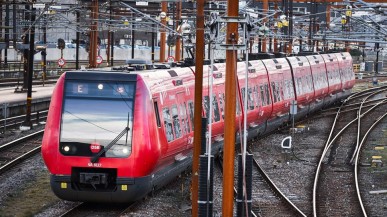Zigurat Global Institute of Technology
Blog / Disruptive Technologies
Smart City Series: Mexican Smart Cities
Categories
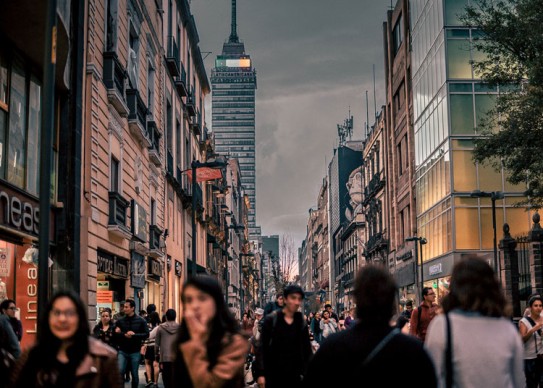
The concept of smart city has ceased to be a technological fantasy and has evolved from fancy buzzword to our hope for a better future as the implementation of state-of-the-art technologies in our cities represents a substantial improvement in the quality of life of the citizens. GIVEN THE RISING INTEREST FOR THIS TOPIC, DURING THE MONTHS OF FEBRUARY AND MARCH, WE COVER SOME OF THE MOST NOTABLE EXAMPLES OF THE IMPLEMENTATION OF SMART PROCESSES FROM ALL OVER THE WORLD. We have talked about the trajectory of Barcelona, which has become a reference for other cities that seek to start on the path of becoming a smart city. We have also explored the Sidewalk Toronto, a unique project that provides for the construction of a smart neighborhood of 325 hectares on the shores of Lake Ontario. Today, it is the turn of Monterrey and Mexico City, although we will also explore some future smart cities of the country. 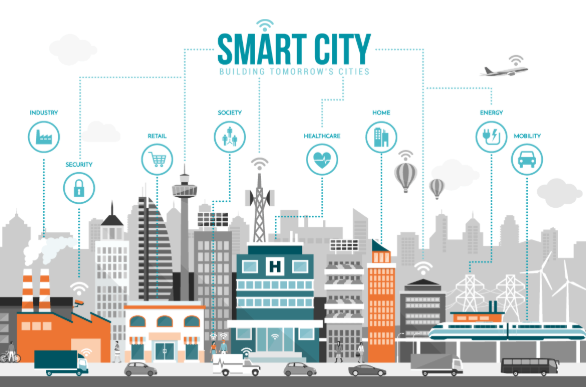 Source: ARC Advisory Group
Source: ARC Advisory Group
Smart Cities in Latin America
When we analyze the Latin American cities that appear as first in the Smart Cities rankings, we must bear in mind that most of them (Buenos Aires, Santiago de Chile, São Paulo, Mexico City) are megacities of more than 10 million inhabitants. For many Smart Cities ideologues, the big urban "spots" are the antithesis of the idea and values of a truly smart city. A smart city is much more than a high-tech city, it is a city that takes advantage of the creativity and potential of new technologies to meet the challenges of urban life in the 21st century. A smart city also helps to solve the sensitive issues of its citizens, such as insecurity, urban mobility problems, water resources management and solid waste. In other words, they are not the instruments that make a Smart City, but everything that is achieved through the implementation of those processes. If there is something that prevents Latin American cities from reaching the top positions in the rankings of smart cities, it is the lack of political projects and digitalization strategies.
Smart Cities in Mexico
Mexico is positioned as the country in the Latin American region with most cities that have smart characteristics. Although there are smart initiatives for the future in several urban centers of the country, Mexico City and Monterrey are the most advanced cities in the implementation of new technologies and are included in the Smart Cities Index of EasyPark and the Cities in Motion Index of the IESE Business School.
Mexico City: Transport is a Priority Issue
Mexico City meets several conditions to be considered a Smart City. Its inhabitants use several applications daily to facilitate their mobility around the city (shared travel services, Uber, Easy, Cabify). To this, it is added that it is one of the first cities to implement the system of shared bicycles (ecobici) to accelerate and decongest traffic. 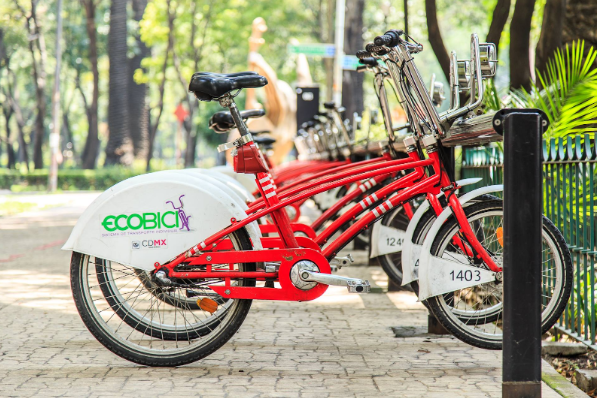 Source: iVenture Card The population of Mexico City spends, on average, 45 days a year using transportation. In monetary terms, this represents 40% of their income, which makes this issue a priority for most of them. To optimize the times of transfer and to minimize the environmental impact that this entails is nowadays one of the main challenges of the capital of the country. In addition to this, Mexico City is one of the cities that most promotes the creation of green and intelligent buildings.
Source: iVenture Card The population of Mexico City spends, on average, 45 days a year using transportation. In monetary terms, this represents 40% of their income, which makes this issue a priority for most of them. To optimize the times of transfer and to minimize the environmental impact that this entails is nowadays one of the main challenges of the capital of the country. In addition to this, Mexico City is one of the cities that most promotes the creation of green and intelligent buildings.
Monterrey: a Sustainable, Inclusive and Balanced City
Many experts point out that the city of Monterrey has great potential to design comprehensive action plan, even more so than Mexico City for example. This is due to the large amount of resources available, as well as its geographical location and the participation and involvement of the government, businesses and academia, which make Monterrey a good laboratory to become a smart city. Monterrey accommodates the Municipal Institute of Integral Planning, with the purpose of elaborating and proposing planning instruments that contribute to an inclusive, transparent, economically sustainable, environmentally balanced and territorially ordered municipal development. Through this public body, professionals with different backgrounds seek to improve waste disposal, lighting and develop a strategy to create a sustainable ecosystem where infrastructure, services and technology improve the living conditions of citizens. Another important feature that places Monterrey one step ahead towards the conception of smart cities is the digitalization of public administration.
Querétaro: the First Smart City in Mexico
Once completed, Maderas in the state of Querétaro is going to be one of the first truly smart cities in Mexico. Maderas was founded in 2013 and it is estimated that the construction will be finished by 2020. Life in this city will unfold to the rhythm of the Internet, through mobile tools and the use of sustainable energies, such as wind and solar energy. The inhabitants will have all the information on their mobile phone, (transportation services, garbage collection, electricity, gas and water) and their houses will have special sensors to determine humidity, temperature and warn about thieves. A fiber optic network will be installed to guarantee 100% Internet connectivity. Currently, some 100,000 homes are being developed in some 400 hectares, in addition to 20,000 properties in the periphery. 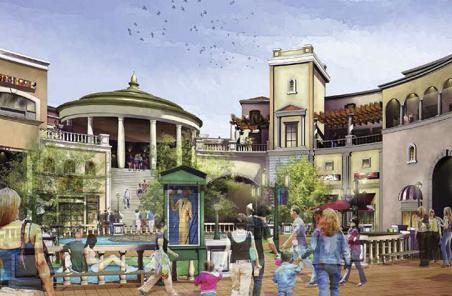 Source: Smart City Queretaro
Source: Smart City Queretaro
Tequila: Big Data Will Help the Town to Respond to tourism demand
Under the name 'Smart Tequila', the municipality of Tequila is in the process of consolidating itself as a smart town (2020). The local government plans to complete the digitization process by 2040. The main digital initiatives in Tequila are the innovation in the production processes of the Agave distillate, as well as the establishment of projects and sustainable development plans. Also, to respond to the great tourist activity in the area, which for this town of 50,000 inhabitants is something relatively new. For example, Big Data will allow them to have accurate statistics to better plan tourism offers. Currently, Tequila has smart points to guide the visitor and heat sensors to see the concentration of people. 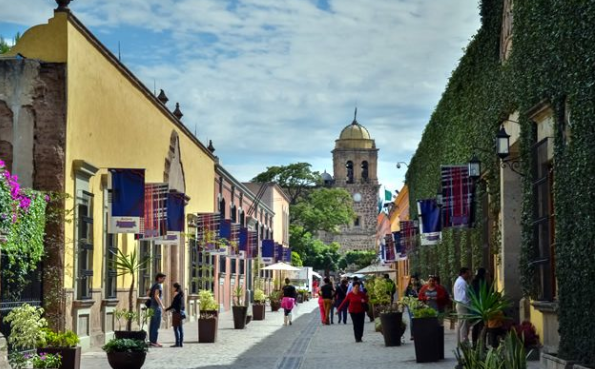 Source: Centro Urbano
Source: Centro Urbano
Guadalajara: Creative Digital City
‘Ciudad Creativa Digital’ is a project that takes place in the city of Guadalajara since 2014 to promote the digital and creative industries of the region. The objective of the initiative is to strengthen Mexico's position within the creative economy. Through investing in this ecosystem, better jobs will be created, there will be more competitive advantages for the industry and new spaces will be provided that encourage coexistence, talent and innovation. This space is made up of 380 hectares that will house 50,000 people and will be a global hotspot for audiovisual, digital and interactive production that will employ 10,000 professionals of the sector. 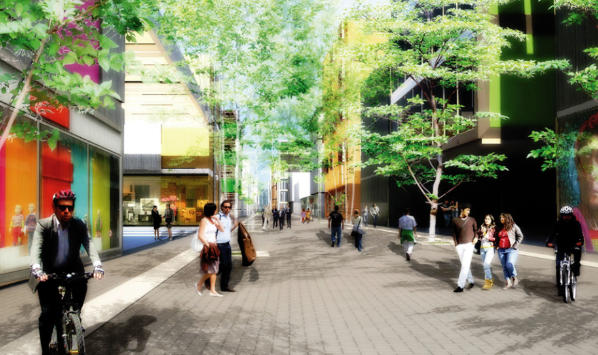 Source: Ciudad Creativa Digital
Source: Ciudad Creativa Digital
Puebla: Applying a Top-down Approach
Smart Puebla is the structured framework of short, medium and long-term objectives, goals and lines of action focused on increasing the quality of life of the population of the state of Puebla. The goal of this project is the creation of public policies that help to reduce the social inequality gap and focus economic development on technological innovation. 
Source: Smart Puebla




